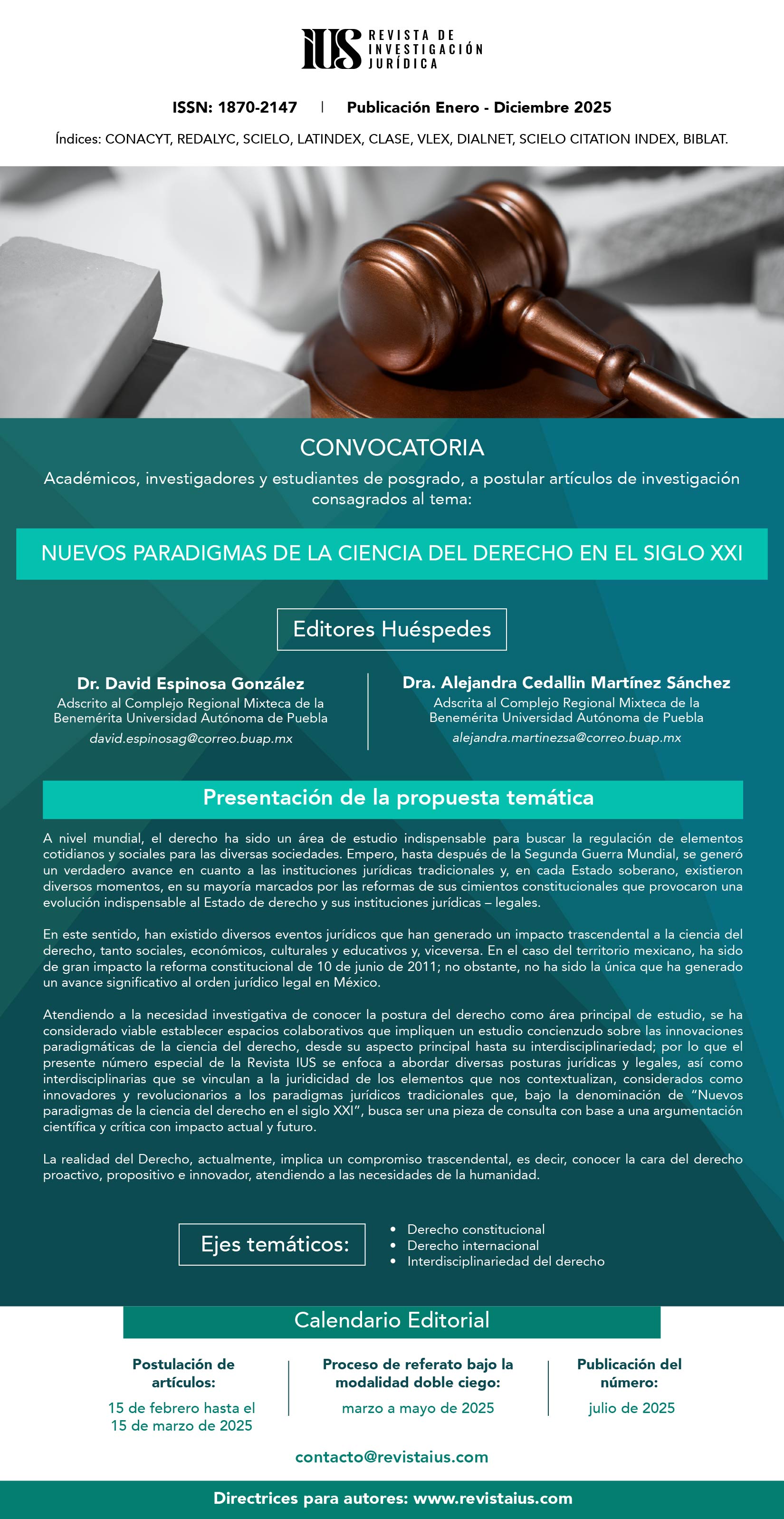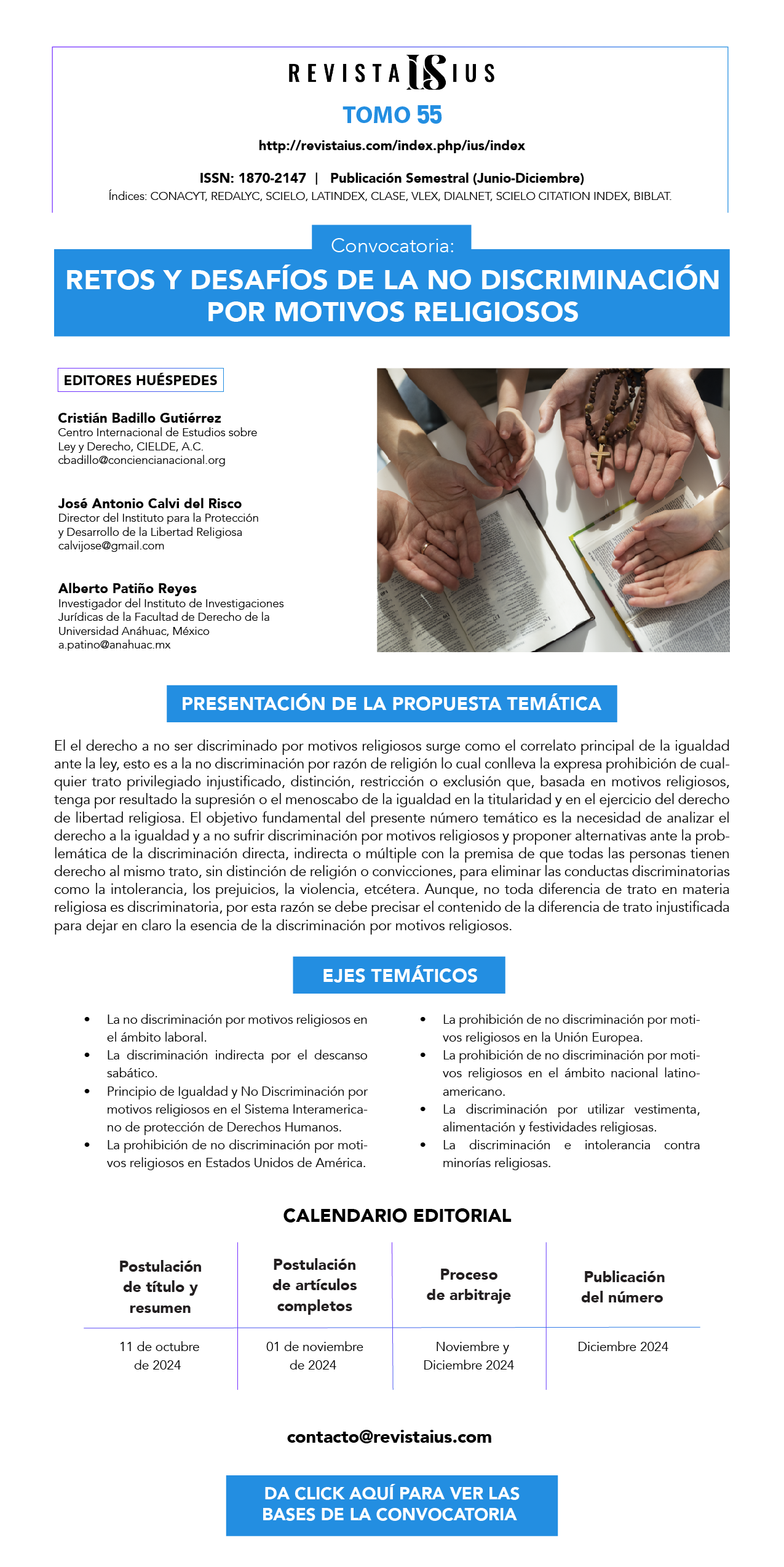El discurso constitucional democrático del voto antidemocrático en el México independiente.
DOI:
https://doi.org/10.35487/rius.v16i50.2022.817Keywords:
Constitución, democracia, ideología, voto, teoría del discursoAbstract
El objetivo de este documento es analizar el sentido del discurso democrático constitucional a través del voto después de 200 años de la independencia mexicana, ello con base en tres teorías inscritas en distintos campos de conocimiento: la semiótica con la teoría de la mentira de Umberto Eco, la teoría del discurso planteada por Julieta Haidar, y la teoría del reconocimiento jurídico en el pensamiento de Hans Welzel; descubrir la contradicción que la Constitución ha mantenido en el tiempo a través de un doble discurso, planteando el voto como un derecho al que le imprime obligatoriedad, ya con la intención de construir una incipiente democracia, o bien de consolidar un autoritarismo disfrazado, buscará penetrar en la conciencia reflexiva de lo que realmente significa votar, no obstante debería ser un tema ya superado.Downloads
References
Eco, Umberto, Tratado de semiótica general, Ciudad de México, Debolsillo, 2005.
Gadamer, Hans-Georg, Verdad y método II, Madrid, 2ª edición, Sígueme, 1994.
Haidar, Julieta, Debate CEU-Rectoría. Torbellino pasional de los argumentos, Ciudad de México, UNAM, 2006.
Pêcheux, Michel, Hacia el análisis automático del discurso, Madrid, Gredos, 1978.
Robin, Regine, Histoire et linguistique, Paris, Armand Colin, Paris, 1973.
Rodilla, Miguel Ángel (coautor), Certeza y predecibilidad de las relaciones jurídicas, Ciudad de México, Fontamara, 2012.
Welzel, Hanz, El problema de la validez del derecho. Una cuestión límite del derecho, Ciudad de México, Coyoacán, 2011.
Downloads
Published
Versions
- 2022-11-10 (2)
- 2022-06-20 (1)
Issue
Section
License
Copyright (c) 2022 REVISTA IUS (México)

This work is licensed under a Creative Commons Attribution-NonCommercial-ShareAlike 4.0 International License.
Revista IUS, published by the Legal Sciences Institute of Puebla A.C., is distributed under the Creative Commons Attribution-NonCommercial 4.0 International (CC BY-NC 4.0) license.
We authorize collaborators to upload a copy of their published work on their personal websites or any Open Access repository, provided that Revista IUS is specifically cited as the original source, indicating the year and issue of the respective example and adding the link to the webpage on which this publication can be freely consulted in toto and without charge: http://www.revistaius.com
Readers are free to:
Share, copy and redistribute the material via any medium or format.
The licensor cannot revoke these freedoms as long as you follow the license terms.
Under the following terms:
Attribution: You must give appropriate credit, provide a link to the license, and indicate if changes were made.
You may do so in any reasonable manner, but not in any way that suggests the licensor endorses you or your use.
NonCommercial – You may not use the material for commercial purposes.
If you remix, transform or build upon the licensed material, its distribution is not permitted.
Charges for managing articles: Revista IUS will not charge for receiving, processing or publishing articles (Article Processing Charge, or APC) submitted by authors.





